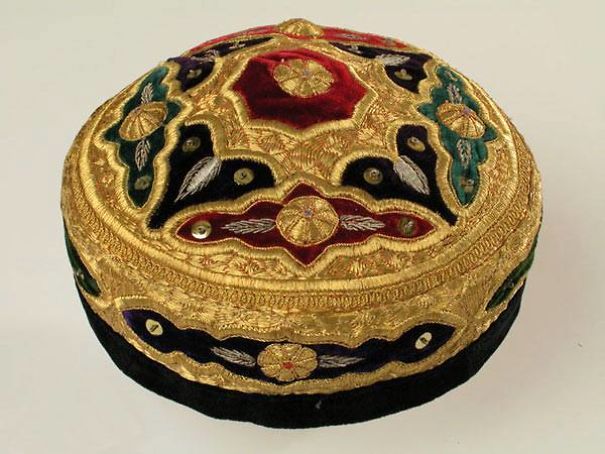Sheikhs Of Skullcaps. How Skullcaps Showed How Little Has Been Done By Sheikhs And Their Sufi Circles On The Path Of Knowledge
Four Sufi sheikhs addressed to Bahauddin Naqshbandi in writing: from India, Egypt, Rum (Turkey) and Persia. Behind each of them stood a certain Sufi circle. In the epistles, they tearfully prayed to Bahauddin to share with them the experience of spiritual training so that they could pass it on to their students.
Bahauddin answered them like this:
“What I own is not new.” You also own all of this, but you are misusing it, and therefore, having received my advice, you only say: “This is not new!”
The sheikhs answered like this:
“With respect to you, we believe that our students will not think so.”
Bahauddin did not answer the letters, but read them at his meetings and said:
– Being aloof from the events taking place, we will be able to understand what will happen. Those who are in the thick of things do not have such an opportunity. And yet they will try to figure out what is happening to them.
Then the Sheikhs wrote letters to Bahauddin asking them to send some sign of his attention. Bahauddin sent a small skullcap for each student, adding that the sheikhs would distribute them on his behalf, but did not mention in a word what motivated him to do so.
In his meeting, he said:
“I did this and that.” Being at a distance, we will clearly see something that those who are directly involved in what is not going to see.
Then, after some time, he wrote to each of the sheikhs, asking if his wish was fulfilled and what followed.
Sheikhs sent back: “Your wishes have been fulfilled.”
As for the consequences, the sheikh from Egypt wrote: “My community zealously took your gift as a sign of special holiness and blessing. The skullcaps were handed out, and everyone saw in them a deep inner meaning and the transmission of your order. ”
The Turkish sheikh wrote: “The community reacted to the skullcaps with great caution. For some reason, people decided that behind this is your desire to get the better of them. Some fear that through skullcaps you can directly exert pressure on them. “
Sheikh from India wrote about other consequences: “Our students are very confused and daily ask me to interpret the meaning of the handed out skullcaps. Without my explanations, they cannot decide how to relate to this. ”
A letter from the Persian sheikh read: “The skullcaps were received, the consequences are as follows: seekers, satisfied with the gift, expect further manifestations of your favor, which will inspire them to greater diligence and zeal, for the benefit of further education.”
Bahauddin gave the necessary explanations to his audience in Bukhara:
– The prevailing type of behavior of members of Sufi circles in India, Egypt, Turkey and Persia in each case was manifested in the answers. Their attitude to everyday things – skullcaps, for example – is essentially the same as to me or to my instruction letter. They would have behaved in the same way if, for example, they had met with me directly. Neither these people, nor their sheikhs were instructed in the need to monitor whether their attitude to the simplest things is an obstacle for them. You should not transfer the attitude to things to people – especially as a criterion for their assessment. For the students of the Persian sheikh, the possibility of understanding remains, since they are deprived of arrogant claims to “understanding” on the model that my skullcaps are a blessing to them, a threat to them, confusion for them. The Egyptians showed hope, the Turks – fear, the Indians – indecision.
The instructive messages of Bahauddin Naqshbandi mentioned above, however, were written down and corresponded – which was considered a pious act – and received circulation among the well-meaning, but not enlightened, dervishes of Cairo and Hind, as well as in Persian and Turkish lands. In the end, they fell into those circles that rallied around the notorious “sheikhs of skullcaps”.
Bahauddin asked one wandering dervish – the calender – to visit all four communities in order to find out how his letters with the requested instructions were received. Upon his return, the calender told the following:
– They say: “This is not new. We do just that. And not just follow this, but also build on this the entire routine of our lives. Our living tradition encourages us to remember this every day. ”
After this, Bahauddin al-Shah Naqshband called all his disciples and said:
– Being far from the events in the communities of the four sheikhs, you see how little has been done by them on the Path of knowledge. They are trained so little that for the most part they are not able to benefit from their own experience. Where, then, are the advantages of “everyday reminders and struggles”? Take the trouble to collect everything that is known about it, and get acquainted in detail with what happened, including the exchange of letters, my statements and the story of the calender. Note that we have offered the necessary training tools. Let everything be written down so that this story can be used for training. Let direct witnesses of the events confirm the truth of what was written – so that, if God’s will were there, at least a description of this case could prevent the frequent repetition of this in the future, and let those who were so deeply affected by the “impact” of harmless skullcaps familiarize themselves with it.
Four Sufi sheikhs addressed to Bahauddin Naqshbandi in writing: from India, Egypt, Rum (Turkey) and Persia. Behind each of them stood a certain Sufi circle. In the epistles, they tearfully prayed to Bahauddin to share with them the experience of spiritual training so that they could pass it on to their students.
Bahauddin answered them like this:
“What I own is not new.” You also own all of this, but you are misusing it, and therefore, having received my advice, you only say: “This is not new!”
The sheikhs answered like this:
“With respect to you, we believe that our students will not think so.”
Bahauddin did not answer the letters, but read them at his meetings and said:
– Being aloof from the events taking place, we will be able to understand what will happen. Those who are in the thick of things do not have such an opportunity. And yet they will try to figure out what is happening to them.
Then the Sheikhs wrote letters to Bahauddin asking them to send some sign of his attention. Bahauddin sent a small skullcap for each student, adding that the sheikhs would distribute them on his behalf, but did not mention in a word what motivated him to do so.
In his meeting, he said:
“I did this and that.” Being at a distance, we will clearly see something that those who are directly involved in what is not going to see.
Then, after some time, he wrote to each of the sheikhs, asking if his wish was fulfilled and what followed.
Sheikhs sent back: “Your wishes have been fulfilled.”
As for the consequences, the sheikh from Egypt wrote: “My community zealously took your gift as a sign of special holiness and blessing. The skullcaps were handed out, and everyone saw in them a deep inner meaning and the transmission of your order. ”
The Turkish sheikh wrote: “The community reacted to the skullcaps with great caution. For some reason, people decided that behind this is your desire to get the better of them. Some fear that through skullcaps you can directly exert pressure on them. “
Sheikh from India wrote about other consequences: “Our students are very confused and daily ask me to interpret the meaning of the handed out skullcaps. Without my explanations, they cannot decide how to relate to this. ”
A letter from the Persian sheikh read: “The skullcaps were received, the consequences are as follows: seekers, satisfied with the gift, expect further manifestations of your favor, which will inspire them to greater diligence and zeal, for the benefit of further education.”
Bahauddin gave the necessary explanations to his audience in Bukhara:
– The prevailing type of behavior of members of Sufi circles in India, Egypt, Turkey and Persia in each case was manifested in the answers. Their attitude to everyday things – skullcaps, for example – is essentially the same as to me or to my instruction letter. They would have behaved in the same way if, for example, they had met with me directly. Neither these people, nor their sheikhs were instructed in the need to monitor whether their attitude to the simplest things is an obstacle for them. You should not transfer the attitude to things to people – especially as a criterion for their assessment. For the students of the Persian sheikh, the possibility of understanding remains, since they are deprived of arrogant claims to “understanding” on the model that my skullcaps are a blessing to them, a threat to them, confusion for them. The Egyptians showed hope, the Turks – fear, the Indians – indecision.
The instructive messages of Bahauddin Naqshbandi mentioned above, however, were written down and corresponded – which was considered a pious act – and received circulation among the well-meaning, but not enlightened, dervishes of Cairo and Hind, as well as in Persian and Turkish lands. In the end, they fell into those circles that rallied around the notorious “sheikhs of skullcaps”.
Bahauddin asked one wandering dervish – the calender – to visit all four communities in order to find out how his letters with the requested instructions were received. Upon his return, the calender told the following:
– They say: “This is not new. We do just that. And not just follow this, but also build on this the entire routine of our lives. Our living tradition encourages us to remember this every day. ”
After this, Bahauddin al-Shah Naqshband called all his disciples and said:
– Being far from the events in the communities of the four sheikhs, you see how little has been done by them on the Path of knowledge. They are trained so little that for the most part they are not able to benefit from their own experience. Where, then, are the advantages of “everyday reminders and struggles”? Take the trouble to collect everything that is known about it, and get acquainted in detail with what happened, including the exchange of letters, my statements and the story of the calender. Note that we have offered the necessary training tools. Let everything be written down so that this story can be used for training. Let direct witnesses of the events confirm the truth of what was written – so that, if God’s will were there, at least a description of this case could prevent the frequent repetition of this in the future, and let those who were so deeply affected by the “impact” of harmless skullcaps familiarize themselves with it.





2
0